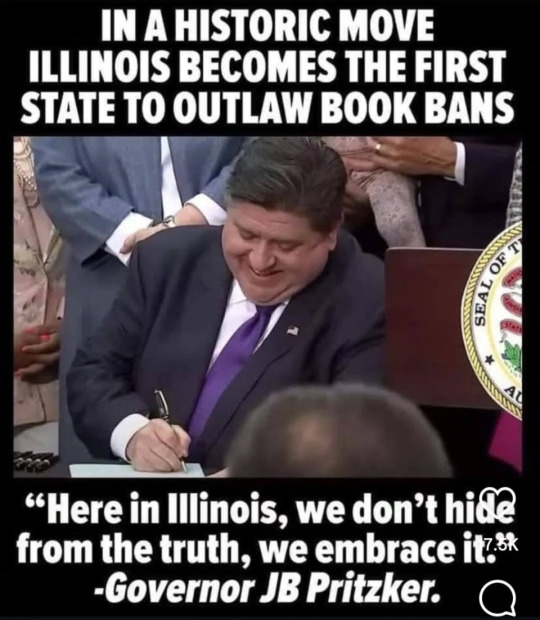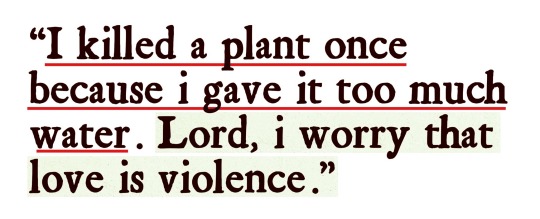Text
supervillain whose go-to evil plan of Kidnapping The Hero's Romantic Interest is foiled after the hero goes through a bad breakup and shows no interest in dating. hence the villain finds themself in the unusual position of playing secret scheming matchmaker to their own archnemesis...
8K notes
·
View notes
Text
"I have depression." - character who has been through extensive therapy.
"I feel dead inside all the time and nothing helps!" - character who does like, regular introspective thinking and is aware of the concept of mental health.
"Leave me the fuck alone I'll be fine once I get over my stupid shit." - repressed character.
"It's fine I'm just having an Empty Time. What? Yeah, empty times, you know, when everything is like bzzzzzz in your brain and you don't shower for two weeks. Why, what do you call it?" - ooooughhh now we're talkin
56K notes
·
View notes
Text
some of the best writing advice I’ve ever received: always put the punch line at the end of the sentence.
it doesn’t have to be a “punch line” as in the end of a joke. It could be the part that punches you in the gut. The most exciting, juicy, shocking info goes at the end of the sentence. Two different examples that show the difference it makes:
doing it wrong:
She saw her brother’s dead body when she caught the smell of something rotting, thought it was coming from the fridge, and followed it into the kitchen.
doing it right:
Catching the smell of something rotten wafting from the kitchen—probably from the fridge, she thought—she followed the smell into the kitchen, and saw her brother’s dead body.
Periods are where you stop to process the sentence. Put the dead body at the start of the sentence and by the time you reach the end of the sentence, you’ve piled a whole kitchen and a weird fridge smell on top of it, and THEN you have to process the body, and it’s buried so much it barely has an impact. Put the dead body at the end, and it’s like an emotional exclamation point. Everything’s normal and then BAM, her brother’s dead.
This rule doesn’t just apply to sentences: structuring lists or paragraphs like this, by putting the important info at the end, increases their punch too. It’s why in tropes like Arson, Murder, and Jaywalking or Bread, Eggs, Milk, Squick, the odd item out comes at the end of the list.
Subverting this rule can also be used to manipulate reader’s emotional reactions or tell them how shocking they SHOULD find a piece of information in the context of a story. For example, a more conventional sentence that follows this rule:
She opened the pantry door, looking for a jar of grape jelly, but the view of the shelves was blocked by a ghost.
Oh! There’s a ghost! That’s shocking! Probably the character in our sentence doesn’t even care about the jelly anymore because the spirit of a dead person has suddenly appeared inside her pantry, and that’s obviously a much higher priority. But, subvert the rule:
She opened the pantry door, found a ghost blocking her view of the shelves, and couldn’t see past it to where the grape jelly was supposed to be.
Because the ghost is in the middle of the sentence, it’s presented like it’s a mere shelf-blocking pest, and thus less important than the REAL goal of this sentence: the grape jelly. The ghost is diminished, and now you get the impression that the character is probably not too surprised by ghosts in her pantry. Maybe it lives there. Maybe she sees a dozen ghosts a day. In any case, it’s not a big deal. Even though both sentences convey the exact same information, they set up the reader to regard the presence of ghosts very differently in this story.
53K notes
·
View notes
Text
i rly rly hate how this site chased so much of its poc userbase away. it feels like i'm hanging out in an ethnostate sometimes
14K notes
·
View notes
Text
male gaze is not 'when person look sexy' or 'when misogynist make film'
death of the author is not 'miku wrote this'
I don't think you have to read either essay to grasp the basic concepts
death of the author means that once a work is complete, what the author believes it to mean is irrelevant to critical analysis of what's in the text. it means when analysing the meaning of a text you prioritise reader interpretation above author intention, and that an interpretation can hold valid meaning even if it's utterly unintentional on the part of the person who created the thing. it doesn't mean 'i can ignore that the person who made this is a bigot' - it may in fact often mean 'this piece of art holds a lot of bigoted meanings that the author probably wasn't intentionally trying to convey but did anyway, and it's worth addressing that on its own terms regardless of whether the author recognises it's there.' it's important to understand because most artists are not consciously and vocally aware of all the possible meanings of their art, and because art is communal and interpretive. and because what somebody thinks they mean, what you think somebody means, and what a text is saying to you are three entirely different things and it's important to be able to tell the difference.
male gaze is a cinematographic theory on how films construct subjectivity (ie who you identify with and who you look at). it argues that film language assumes that the watcher is a (cis straight white hegemonically normative) man, and treats men as relatable subjects and women as unknowable objects - men as people with interior lives and women as things to be looked at or interacted with but not related to. this includes sexual objectification and voyeurism, but it doesn't mean 'finding a lady sexy' or 'looking with a sexual lens', it means the ways in which visual languages strip women of interiority and encourage us to understand only men as relatable people. it's important to understand this because not all related gaze theories are sexual in nature and if you can't get a grip on male gaze beyond 'sexual imagery', you're really going to struggle with concepts of white or abled or cis subjectivities.
98K notes
·
View notes
Text
My advice to every artist (and honestly, everyone, but it’s especially relevant if you want to make art yourself) is to learn to appreciate everything other people make. Especially things you don’t like! Look at weird, ugly, bad art, with clashing colors and weird proportions and botched perspective and tropey subjects. Look at things made by amateurs an hobbyists and children, with shaky lines and incomprehensible detail. Look at everything you might find cringe or unpleasant - look at furries and gore and fetish porn and all the niche fandom crossovers. Look at art from cultures you don’t know well, look at things made hundreds of years ago, look at paintings from art movements you don’t know or don’t like at the museum. Look at photography and sculptures and fashion shows and murals on buildings and the design of everyday objects like chairs or lampposts or cars. Look at animation and comics and advertising, even the design on your cereal box.
And each time you look, try to find one thing you can appreciate about it. It’s fine if you don’t enjoy the art, but try to find something in it that has value, something you can respect about it, something that moves the world. It can be mastery of a technique, it can be the emotion conveyed, the thought it provoked, it can be color choice, composition, originality, or it can simply be the act of creation itself. Even in art that makes you uncomfortable, art that you find disgusting or bland or vile or ugly or just lame. You need to learn to see it. It’s ALWAYS there. Really look for it. Because you can learn from every single one of these things. Ask yourself why the artist made this, why they made it in this way. Wonder what someone other than you might see that you don’t see, if it has a meaning you just can’t grasp.
You will learn about the value of art, what it means to create, what it means to be human. If you can appreciate those things, it’ll reflect in how you make your own art. Not only will it deepen your relationship to art as a whole, but it’ll allow you to jump past the initial instinct to look away and give you the opportunity to notice techniques and patterns that you maybe wouldn’t have thought to use otherwise! You can learn from the masters, but you can also learn from everyone else. Learn to see the soul in art! I promise it’s worth it.
3K notes
·
View notes
Text
a lot of people are dismissing the "violent" rap music rushing and scrambling to say well not ALL rap is violent here's some rappers who don't rap about violence but like. idk. I think the "violent" rap is important to listen to as well. do you know why gangs exist? do you know why Compton is the way that it is? can you listen to the experiences of black men when you can't personally relate on any level? or will you dismiss an entire genre of music because certain sub genres make you feel a bit uncomfortable as a non-black person?
30K notes
·
View notes
Text
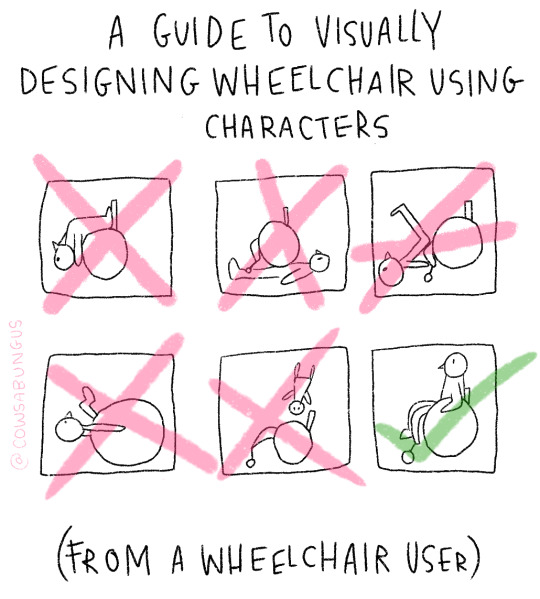
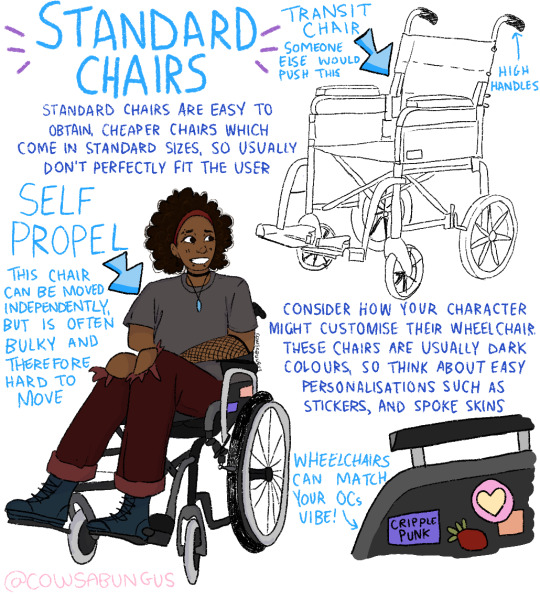
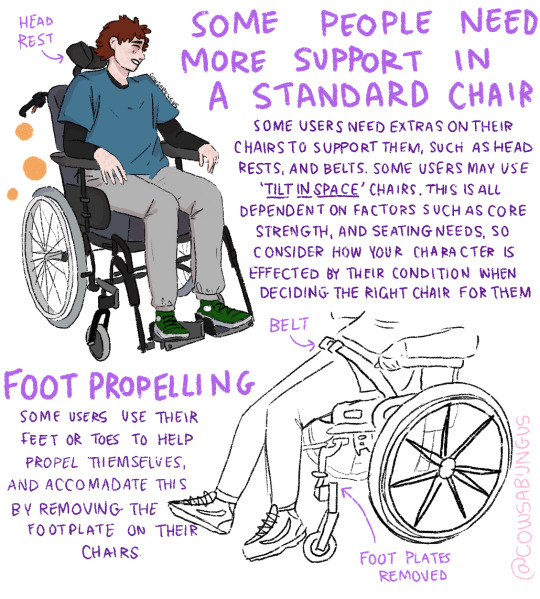

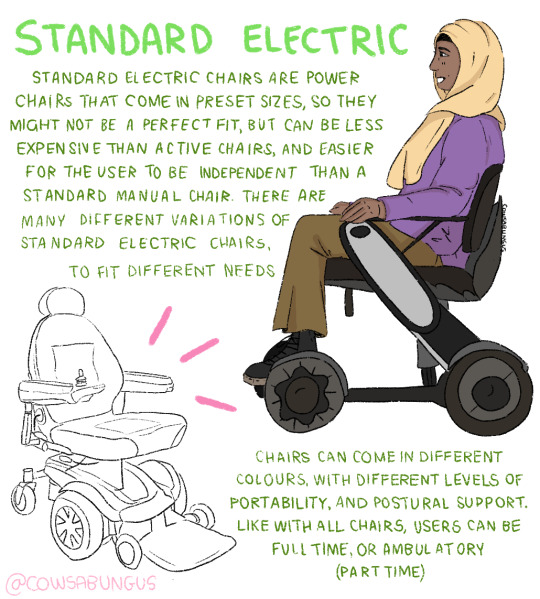

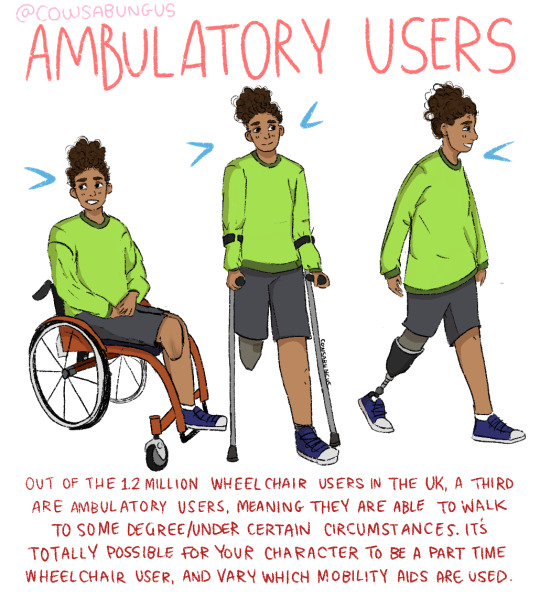
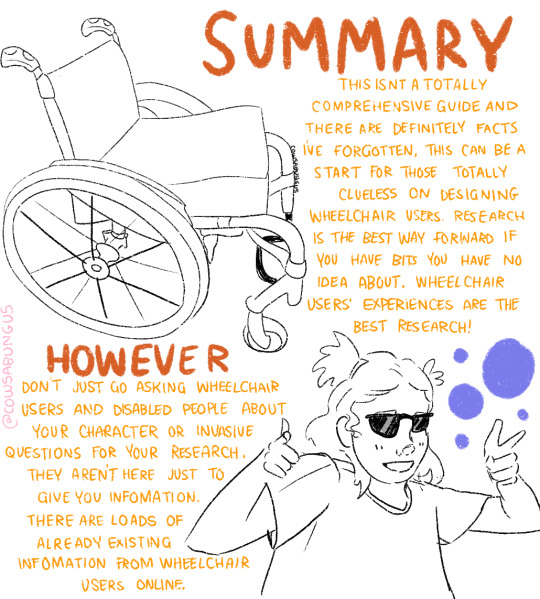
A guide to designing wheelchair using characters!
I hope this helps anyone who's trying to design their oc using a wheelchair, it's not a complete guide but I tried my best! deffo do more research if you're writing them as a character
116K notes
·
View notes
Text
The key shortcut of "windows key" and "." held together has changed my life
like
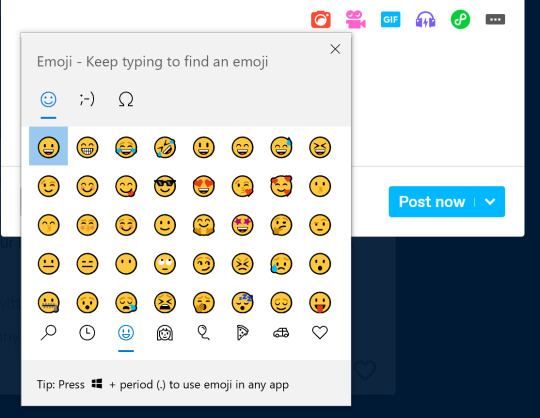
emoji access? supremely powerful 🙂💖
But

Kaomoji ?
The year is 2013 and I am unstoppable ヾ(•ω•`)o o(* ̄▽ ̄*)ブo(*°▽°*)o
244K notes
·
View notes
Text

A brief moment of rationality from the bird place.
155K notes
·
View notes
Text
btw it is sexy and cool to uplift and admire people who have skills you wish you had without using their ability as a stick to beat yourself with. even and especially if you are jealous of them.
44K notes
·
View notes
Text
love the library. there's no risk. you can take out a book and go "wow this sucks" and just give it back. and when you do that you're still making the library's Number Go Up so you'll be able to roll the dice on even more books. all for the low low price of free/you already paid for it with your tax money so you might as well use it
30K notes
·
View notes
Text
She would not fucking say that. Yes she said that in canon, but I perceive a greater truth unaffected by her writer's misogyny
22K notes
·
View notes
Text






me and stevo talk about the commodification of alternative crowds
29K notes
·
View notes
